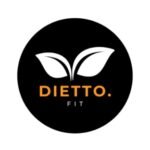Gerontology and geriatric
Our Solutions
- Sports Nutrition
- Renal Nutrition
- Oncology Nutrition
- Corporate Nutrition
- Cardiovascular Disease Diet
- Therapeutic nutrition
- Naturopathy
- Gerontology and geriatric
- Pediatric nutrition
- Gastrointestinal (GI) disease nutrition
- Liver and pancreas
- Pancreas Health and Nutrition
- Obesity and underweight nutrition
- Infections and fevers nutrition
- Anaemia nutrition
- Pre and post pregnancy nutrition
Health Conditons

Gerontology and geriatric
Gerontology and geriatric nutrition are closely related fields focused on the health and well-being of older adults.
Gerontology
Gerontology is the study of the aging process and the challenges encountered as people grow older. It is a multidisciplinary field that includes aspects of biology, psychology, sociology, and public health. Key areas of focus include:
Biological Aging: Examining the physiological changes that occur as individuals age, including cellular and molecular changes.
Psychological Aging: Understanding how aging affects mental health, cognitive function, and emotional well-being.
Sociological Aging: Studying the social aspects of aging, such as changes in roles, relationships, and social networks.
Public Health and Policy: Developing policies and programs to improve the quality of life for older adults, addressing issues such as healthcare access, housing, and social services.
Geriatric Nutrition
Geriatric nutrition is a subfield of gerontology focused on the dietary and nutritional needs of older adults. Proper nutrition is crucial for maintaining health, preventing and managing chronic diseases, and enhancing the quality of life in older age. Key components include:
Nutritional Needs: Understanding how nutritional requirements change with age, such as increased need for certain vitamins and minerals.
Dietary Guidelines: Developing dietary recommendations tailored to older adults to promote healthy aging.
Malnutrition: Identifying and addressing issues of malnutrition, which is common in older adults due to factors like reduced appetite, difficulty chewing, and economic constraints.
Chronic Disease Management: Using nutrition to manage and prevent chronic diseases such as diabetes, cardiovascular disease, and osteoporosis.
Functional Foods and Supplements: Exploring the role of functional foods and dietary supplements in supporting health and well-being in older adults.
Interdisciplinary Care: Collaborating with healthcare providers, including doctors, nurses, and dietitians, to provide comprehensive care.
gerontology and geriatric nutrition together contribute to a comprehensive understanding and support system for the aging population, promoting healthier and more fulfilling lives for older adults.
Meeting Nutrient Needs- Older adults may have specific nutrient needs due to changes in metabolism, absorption, and health conditions.
Managing Chronic Conditions like Heart Disease, Diabetes, and Hypertension commonly seen in older adults. .
Maintaining Muscle Mass and Bone Health
Managing Digestive Issues like Constipation and Digestive Disorders Older adults may experience.
Supporting Cognitive Health like oxidative stress and inflammation.
Maintaining Hydration.
Addressing Oral Health such as dental problems may affect chewing and swallowing.
Preventing Malnutrition and Weight Loss are common concerns in older adults and can lead to frailty, weakened immune function, and increased risk of infections.
Services Offered
Our nutrition team love the benefits of exercise and healthy food.
- Client monitoring in real-time
- Physical activities
- Psychological help

